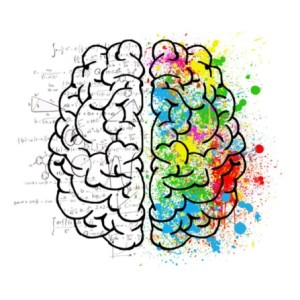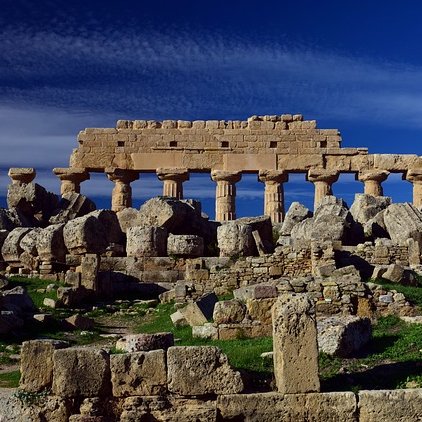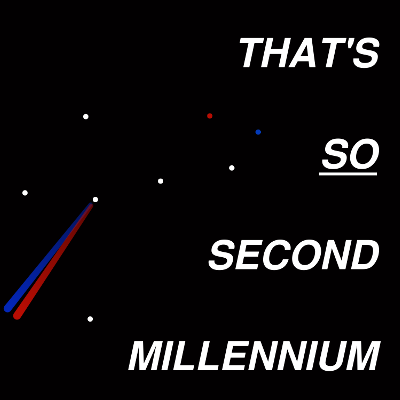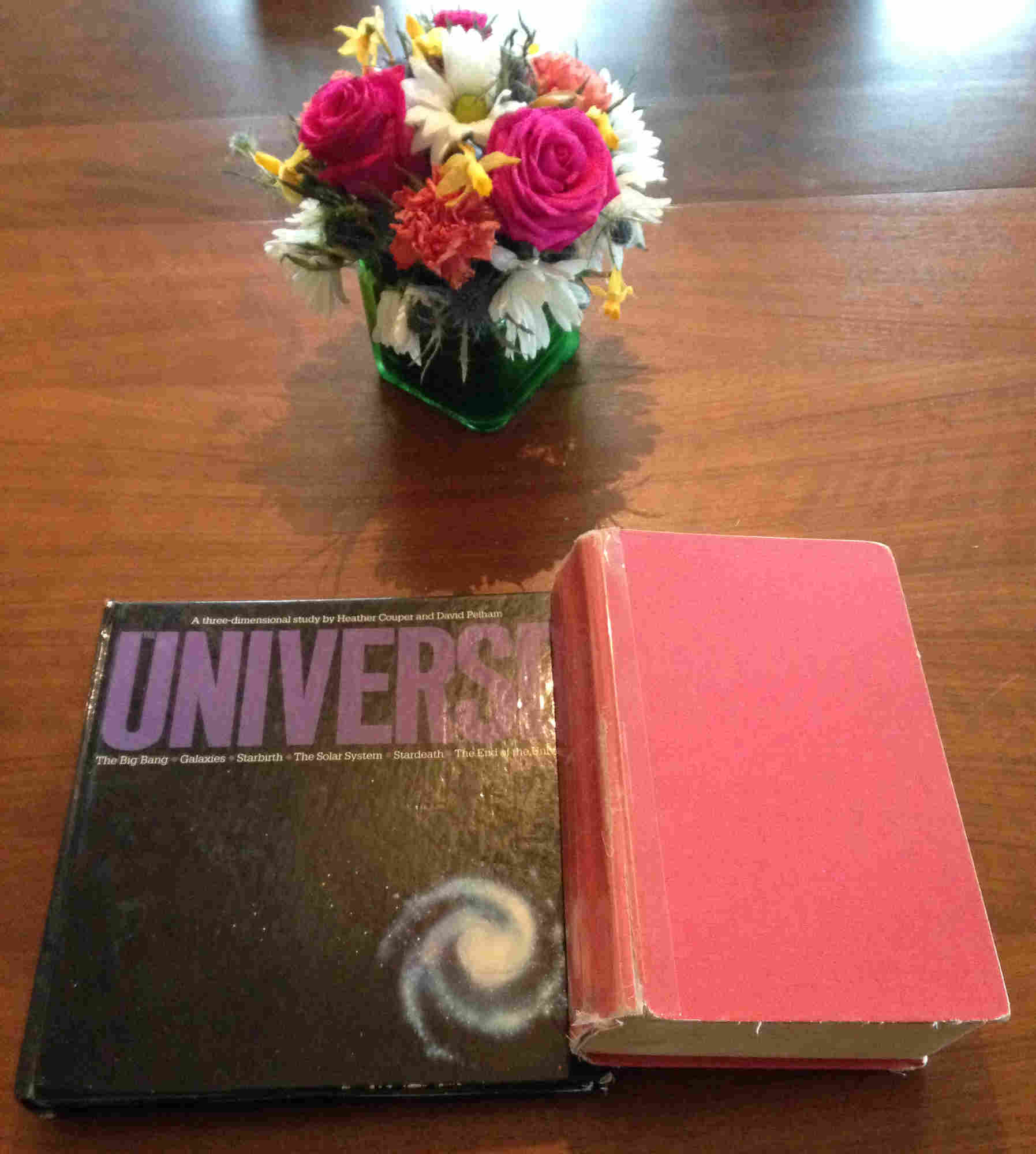Episodes

Monday Jul 23, 2018
Episode 017 - Aaron Schurger at SCSC: Fifty Years Without Free Will
Monday Jul 23, 2018
Monday Jul 23, 2018
It's a short one this week. We discuss the talk at the Society of Catholic Scientists Conference by Aaron Schurger with the delightfully provocative title "Fifty Years Without Free Will." (Those of you who are similiarly obsessive about grammar will appreciate my deep feeling of conflict about capitalizing the preposition "without"...one is not supposed to capitalize prepositions, yet it looks awful to have a seven letter word not capitalized. It's not capitalized in my notes, but it was in the program.)
Notes I took during the talk, which for this podcast pretty closely follows the drift of our conversation:
Distinction of the "neural decision to move"
Readiness potential with ~1 sec onset time
Libet et al 1983 Brain 106:623-42
asked subjects to report when they decided to move
happened ~3/4 sec after readiness potential, only ~1/4 sec before the movement
Taken by many as proof that "there is no free will"
Alternative interpretation: the "readiness potential" is random drift of neuron voltages
under the weak imperative to move
Need to pay careful attention to experiment setup & analysis of data [Paul's comment today: *always*]
Problems with only analyzing data time-locked to movement and extracted

Monday Jul 02, 2018
Episode 014 - Ed Feser's Keynote at SCS
Monday Jul 02, 2018
Monday Jul 02, 2018
In this episode we begin a series of recaps and discussions of the issues brought up by individual lecturers at the Society of Catholic Scientists conference on June 9 and 10. We start with Ed Feser's keynote, "The Immateriality of the Mind."
Feser's objective was to highlight how our ability to be rational, and in particular for our thoughts to mean something unambiguous - even in the face of our inability to express ourselves in a completely unambiguous way in our spoken or written words - makes it difficult to maintain a purely materialist / physicalist view of human minds and therefore of the universe they inhabit.
At the outset he noted that rationality tends to occupy less attention in philosophy of mind and matter than two other properties, consciousness and intentionality, which seem widely taken as more difficult to explain by our contemporaries. For ancient and medieval philosophers, however, rationality was probably the clearest indication that the human mind is not some sort of solely physical mechanism.
Feser presents an argument via James Ross (Thought and the World) to try to bring this older consensus into the mainstream. It can be presented thus:
- Formal thought processes can have an exact, unambiguous content.
- Material signs and processes never have unambiguous content.
- Formal thought processes must employ an element not dependent on materials signs and processes.
We discuss Feser's points and a few of our own in favor of the two premises: our inability to be sure of the content of arithmetical symbols used outside our own range of experience, the ambiguity of translating ancient languages like Linear A, and the absurdity of believing I can't ultimately know what I'm thinking about.

Monday Jun 25, 2018
Monday Jun 25, 2018
Intro
Overview of the conference - schedule
Talks
Edward Feser & connections to Bishop Barron
Theme: Human Mind & Physicalism
Development of the problem and the amazing change in intellectual climate since the 19th century
Laplace and absolute determinism - 19th century consensus
Quantum mechanics demolished this intellectual basis for determinism, although it is clung to fiercely down to the present day, including the profoundly horrifying "many worlds" hypothesis
Bell inequality and the talk by Valerio Scarani about the closing of the loopholes that would allow a "hidden variables" interpretation of quantum mechanics (which would also save determinism, in a much saner way than the "many worlds" hypothesis)
Materialism and "spiritualism" (if you will) are on an equal logical footing, even if cultural issues continue to propel many scientists and intellectual citizens of the contemporary world away from belief in extramaterial beings
Society of Catholic Scientists as a place of refuge from this social pressure toward materialism
The gap between spiritual and material in ancient thought versus modern thought
The problem of qualia, choice, and consciousness and the lack of an actual materialist model for these, as opposed to evasive and reductionist language
On the other hand, the reality of a physical manifestation of all (or nearly all) mental phenomena, the dignity of matter in this detailed participation, and the absolute need for human souls to have bodies in order to be complete human beings (in contrast to Manichean, Platonic, or Cartesian dualism)
The scholastic notion of the human soul as form of the body
The Aristotelian soul / souls
Are vegetative (and animal) souls the forms of those bodies...are those essentially their genetic structure?
This ties back to our existing discussions about "hylomorphism for the third millennium" (so to speak)
The need for a new metaphysics and philosophy in general to rise up and deal with the strange new world that modern science has brought to our attention.
The scholastics, Aquinas of course being the one we remember, had a philosophy that was capable of being constructive...Chesterton's comment that modern philosophers ask us to accept some crazy thing in order to found their system, while Aquinas' starting point was common sense.
The difficulty of thinking and doing interdisciplinary scholarship in the modern world, despite decades of recognizing that we need to do it, due to the volume of human knowledge today and also the whole economic and sociological apparatus that depends on measuring scholars' output somehow...which is tremendously easier for single-focus scholars to maximize.
There is a unique joy that we can have as scientists of faith...both in our subject matter and in our fellowship with each other.
Our next few episodes will look at the subject matter of specific talks at the conference.

Monday Jun 04, 2018
Episode 010 - Intellectual Citizenship (part 1)
Monday Jun 04, 2018
Monday Jun 04, 2018
Bill and Paul dive into a very simple question posed by Bill over email: "Please describe more what is intellectual citizenship?" That of course opens up a question that lurks behind every issue we discuss, and any philosophical or religious question touches upon, which is what we owe the universe, its Creator if it has one, and each other. We can't learn everything about everything, and we must make choices what to spend our time on.
In the political system we inhabit, in the U.S. and other contemporary representative democracies, we choose whom to trust to make decisions for us. There is a tendency to think about our choices in voting as a process of simply matching up policy preferences, but that leaves out of consideration the very important human question of which candidate will actually act on his or her stated policy preferences and do so effectively.
In our awareness of the broader world, when we give our allegiance to science, it's good to have an idea to what sort of thing we are pledging ourselves. Different sciences are at different stages of development and are more or less ripe for further paradigm shifts. Those paradigm shifts may come more or less "off in the distance," where they may or may not affect how we solve practical problems. The paradigm shifts we've discussed in physics didn't change how civil engineers made their calculations, but the plate tectonics revolution in the 1960s did have practical ramifications for economic geology and hazards assessment, just to name two things. The human sciences of economics, sociology, and psychology are good examples of sciences that are ripe for paradigm shifts. Indeed, currently, they are in the really unstable situation of having multiple competing paradigms.
When we apply science to a practical question, like the issue of climate change, being a good intellectual citizen means gaining at least some awareness of the different parts of the problem and the degree to which our experts can express certainty on each issue. Climate change requires at least three big components. First, we need the basic thermodynamics of how air and water respond to heat, how they move and mix. On that abstract level of physical laws, we have great certainty. Second, we need detailed data on the temperatures, wind speeds, air composition, etc. all across the planet. On that level, we have a great deal of data, but not as much as we could conceivably want. Third, we need models that run on as dense as possible a cluster of node points, which is to say models that divide up the atmosphere, land, and oceans into the largest number of little boxes possible; and likewise, models that take into account as much of the physics as possible, and not just a few of the elements. This is the really hard part, even with the computing resources we now have.
Bill wraps up the episode by noting how daunting we have made the question of intellectual citizenship and also how important the question of models is whenever we try to apply science...and maybe any body of intellectual knowledge...to our problems. We will take these questions as our point of departure for the next episode.

Monday May 21, 2018
Episode 008 - Paradigm Shifts in Science and Religion
Monday May 21, 2018
Monday May 21, 2018
Resuming the cliffhanger: the breakdown of classical physics
Shift from the classical to the quantum paradigm
Light is in individual packets of energy whose size is keyed to the frequency of the light.
This is the solution to the blackbody problem: the mathematics of emission of quanta of light energy produces the well-behaved curve with a peak at a given color that we see for hot objects, whether the Sun, iron in a forge, or a light bulb filament
It is also the solution to the photoelectric effect: light of high enough frequency is needed for the individual light quanta to add enough energy to eject electrons. Apparently the atoms can only interact with these photon quanta one at a time; you cannot add multiple red photons to eject an electron, but rather you need a single blue one.
The spectra of the Sun (with absorption lines) and energized gases (like neon or sodium lamps, with emission lines) turned out to be compatible with this quantum theory as well. The structure of the atom itself must be quantized, and electrons must live in well-defined energy shells; when they move from one to another, they emit or absorb photons of a well-defined frequency. Quantum theory began to solve problems chemists did not necessarily even realize they had about, e.g., why chemical bonds tend toward exchanging or sharing electrons so as to reach the number 8 in the outer shell.
Still, even with all this evidence, as the saying went, “Science progresses funeral by funeral.” Many older scientists stayed in the old paradigm to the end of their careers, whether as recalcitrants who refused to even believe in the new paradigm, or perhaps more often as castaways adrift in the new sea, clinging to the old research programs they were comfortable with and hoping, implicitly, that their work would add up to something that would remain untouched in the new world order their students would inhabit.
Religion: why do people believe? Is it reasonable or just arbitrary?
Picture a craftsman in Corinth c. 50 AD/CE.
This guy named Paul shows up in the stall next to you and starts making tents. While he’s not making tents, he’s talking about this Jesus guy with these crazy claims that he’s been killed and then “rose from the dead,” whatever that means.
You don’t think too much of it until the day you watch him grab Alexander the cripple by the hand and he suddenly starts walking! You’ve seen this guy for 15 years sitting there begging…
Yet for all the miracles, do you change your beliefs?
It helps that Paul is talking about this Jesus as the Son of, not some Greek god few of you really believe in any more, but some transcendent God that sounds a lot more like Plato’s Form of the Good or Aristotle’s Prime Mover.
It helps a lot more that you see changes in yourself as you listen to Paul: the things you’ve done and the things you’ve suffered make more sense. You want the forgiveness and the joy that Paul says this Jesus brings.
All of which is to say, in both scientific paradigm shifts and religious conversions, it takes a convergence of falsified old predictions, verified new predictions, and the ability to fit things that still work from the old paradigm into the new paradigm for the paradigm shift to take place.

Thursday May 17, 2018
Bonus Episode - Science, Scholarship, and University Teaching
Thursday May 17, 2018
Thursday May 17, 2018
Bill prods Paul into discussing how the mindset of the saying, "Science progresses, funeral by funeral" and its attitude of constantly discarding the past in favor of the new has taken over the academy. It isn't the right mindset for, say, literature, or even for undergraduate teaching, but because of the prestige (and funding) accorded to science research in the modern university, other disciplines have begun to imitate it. Top researchers often do not make the best teachers, either...

Monday Apr 02, 2018
Monday Apr 02, 2018
Why pick either science or religion when you can have both? We open the discussion and touch on how fields as disparate as cosmology, neuroscience, and psychology interweave with faith in fascinating ways.

Monday Apr 02, 2018
Marriage, Divorce, the Church, and Psychology
Monday Apr 02, 2018
Monday Apr 02, 2018
We recorded this discussion as we were making Episode 1 and decided it needed to be a separate bonus episode.

Tuesday Mar 27, 2018
Bonus Episode - Paul
Tuesday Mar 27, 2018
Tuesday Mar 27, 2018
Paul (Giesting!) describes his intellectual and spiritual journey and why he's part of That's So Second Millennium.

